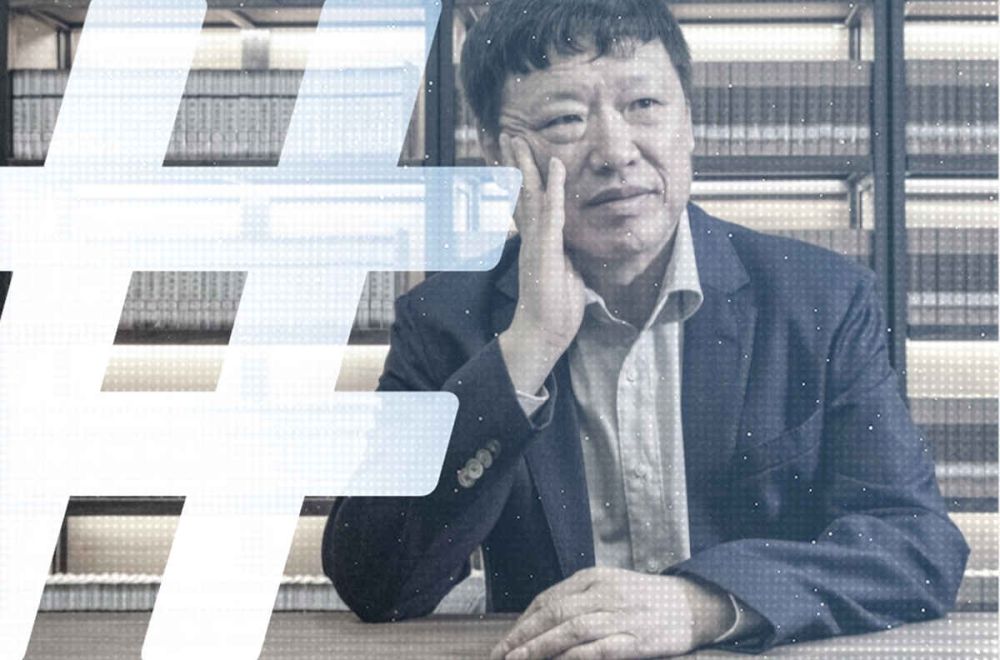
In a lengthy profile this week, The Guardian took an in-depth look at Global Times editor-in-chief Hu Xijin (胡锡进) and his outsized voice overseas, where his “endless stream of quotable insults and invective stands out amid a sea of bland official statements.” Hu, hated or loved, has indeed loomed large as a voice from the nationalistic fringes of China’s official Party-state press, and as a global provocateur constantly bickering with China’s critics. “For now, Hu fights on,” The Guardian profile concluded.
This long-read will likely prove, however, to be one of the first notes of the outspoken editor’s swan song. In a Weibo post at 12:03PM today, Beijing time, Hu confirmed rumors swirling yesterday that his retirement was imminent. Sources tell CMP that Hu was in fact removed for reasons that are not yet clear, perhaps stemming from unhappiness over his highly visible international remarks in recent days or weeks.
A report yesterday in Hong Kong’s Tsingtao Daily News, shared by several other media, announced Hu’s pending retirement and said that the central leadership was keen to “strengthen [the paper’s] political guidance” (政治导向). This language seemed to suggest there might be concerns at the top about Hu, or the Global Times, as loose cannons firing against the discipline coming from above. Could something in his recent spate of posts about tennis star Peng Shuai – which sometimes seemed a clumsy operation run from a back office at the Global Times – have fallen afoul of powerful figures in the Party?
Through yesterday, however, there was no reliable confirmation of any change to Hu’s status at the helm of the pugnacious national tabloid – and Hu had, in any case, faced similar rumors in the past, including a report in Singapore’s Lianhe Zaobao back in June reporting that Wu Qimin (吴绮敏), deputy head of the international desk at the paper’s parent People’s Daily, was being prepared for Hu’s post.
In his Weibo post today, Hu Xijin writes that, at 62, “the time has come to retire.” He says that he has already submitted the paperwork for his retirement, and that he will “no longer serve in the position of Global Times editor-in-chief.” He adds, however, that he plans to continue writing for the paper as a “special commentator,” and that he will continue to “do my utmost for the news and public opinion work of the Party.”
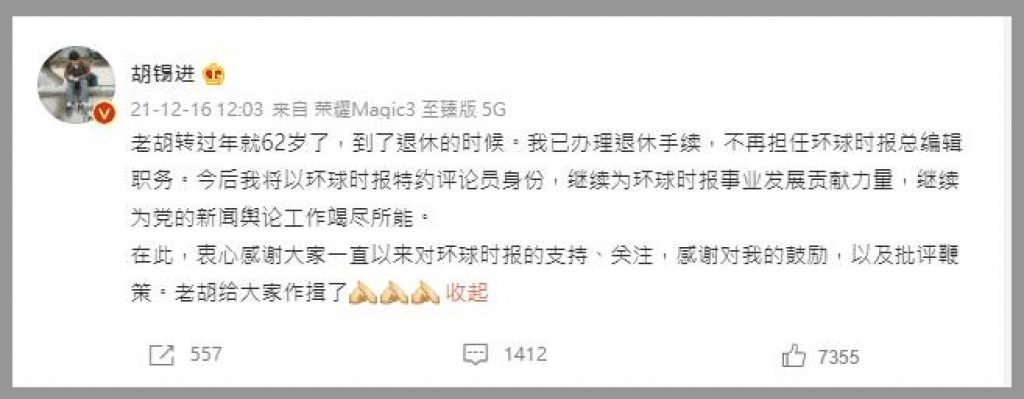
As the questions begin about the possible nature of the Global Times after the departure of the “troll king,” it is a good time to look at the two people who are rumored to be Hu’s replacements.
According to some reports, including that at the Tsingtao Daily News, the rumored shake-up at the Global Times will create a new director (社长) position, to be held by Fan Zhengwei (范正伟), currently a deputy head of the commentary department at the People’s Daily. The purpose of this position would presumably be to exercise greater direct control over the editorial line at the Global Times. Although the full situation is yet unclear, something worth emphasizing again, it might be that CCP leaders feel the Global Times is due for more “party spirit” and a bit less Hu Xijin spirit, even though Hu has in many ways been an exemplary servant of Party-state.
Who Is Wu Qimin?
In addition to Fan Zhengwei’s arrival, Hu’s position as editor-in-chief will reportedly be taken on by Wu Qimin, the People’s Daily international desk deputy head who was rumored as a replacement last June. Wu joined the international department at the People’s Daily in 1991, and has since filed hundreds of reports from around the world on wide-ranging issues, from US-China trade to China-Africa relations. She is the author of a 2013 book, published by the People’s Daily, called Special Reports on High-Level Diplomacy (大国外交第一现场), which gathers many of her reports.
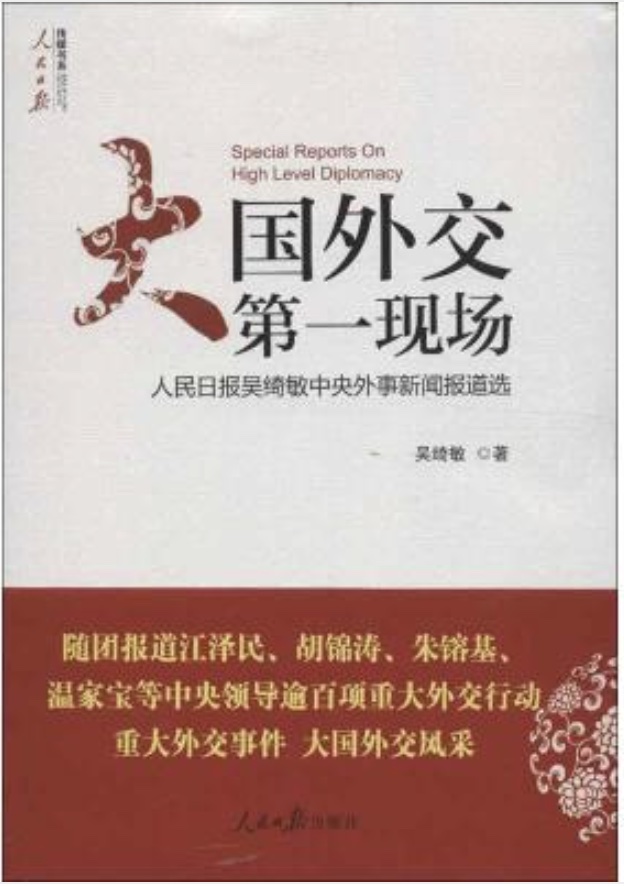
In one article from August 2018, as Wu reports on the China-Africa Think Tank Forum held in Beijing, her focus is clearly on the issue of “discourse power” (话语权), and the need for China and African nations to strengthen their voices through development. Her writing shows a penchant for florid and overwrought language, and of course (par for the course in Party-state media) hyperbole. Development opportunities as a result of the Belt and Road Initiative are “unlimited,” and “the light of hope shines.”
The adjustment of the world’s discourse system can be called the inevitable result of the adjustment of the world economic landscape. In today’s world, the places where rapid economic development can be most readily seen is in those emerging market countries and developing countries, and particularly in those areas where the “Belt and Road” initiative is providing unlimited opportunity. Among them, China and Africa are both hotbeds of development where the light of hope shines.
Wu concludes that the “new pattern of joint development between China and Africa” indicates that there is “a huge space for both sides to enhance their discourse power.” This is her takeaway from the Beijing forum.
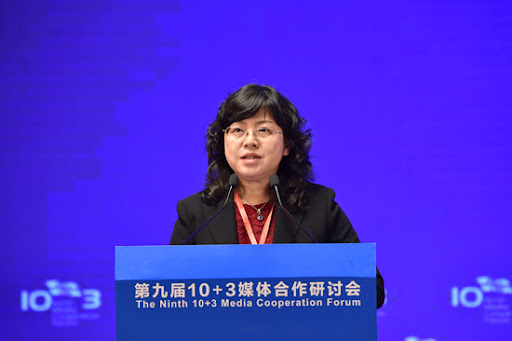
Reports back in June this year cited sources in Beijing as calling Wu “competent,” “rational” and “modest.” The last of these qualities would perhaps set her apart from Hu Xijin, who has in many respects been a noisy self-promoter.
Who Is Fan Zhengwei
A native of the city of Suide (绥德), in Shaanxi province, Fan was born in 1980. Between 1999 and 2006, Fan studied for both his bachelors and masters degrees at Peking University – first in the Department of Chinese Language and Literature and later in the university’s School of Law. According to the WeChat public account “Media Training Camp” (传媒特训营), people in the Chinese media familiar with Fan Zhengwei have described him as “young, handsome, modest and meticulous about his work.”
According to reports from Xinhua News Agency, Fan Zhengwei was among a small number of People’s Daily staff members who personally met with Xi Jinping during his visit to the paper on February 19, 2016, during which the leader clearly outlined his media policy and emphasized the need for all media to “love the Party, protect the Party and serve the Party.”
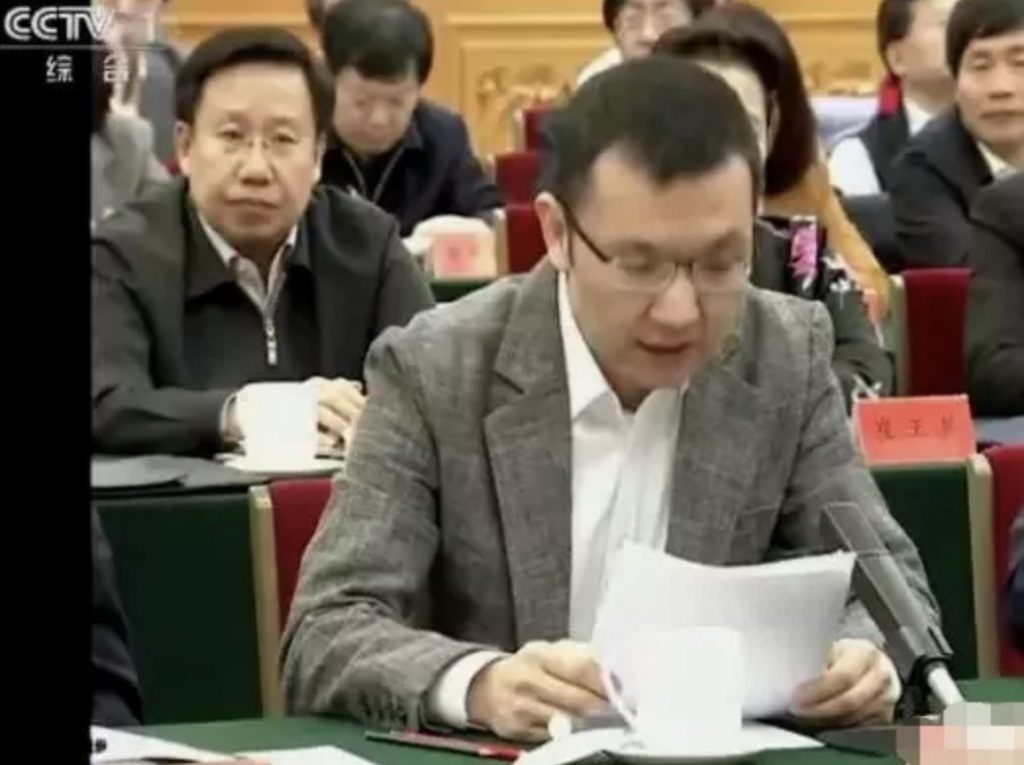
Fan joined the People’s Daily shortly after his graduation in 2006 (by which time Hu Xijin had been in editor-in-chief of the Global Times for less than a year), and his first bylines as a reporter appear in the flagship CCP newspaper at this time. By 2008, however, Fan was regularly writing commentaries, his first, on May 16, about the spirit of solidarity in the aftermath of the disastrous Sichuan earthquake. “Disaster relief is a battle against time, but also a lasting psychological war,” Fan wrote. “Earthquakes can shake down houses and bridges, but they cannot break our psychological defenses. We believe that with more psychological intervention teams rushing to the disaster area, with the unity of the people and support from all sides, people in the disaster area will be able to get out of the psychological shadow as soon as possible, rebuild a better home, and rebuild a better life.”
In a commentary on March 2, 2009, in what in retrospect seems like a more open period in terms of information policy (See CMP’s interview with Zhan Jiang), Fan wrote about an online dialogue staged between Hu Jintao and Chinese netizens.
“[As the saying goes] ‘What the people worry about, I think about; what the people think about, I do.’ In the face of the most difficult year for the economy in the new century, leading cadres at all levels should pay more attention to the voice of the people, pay attention to the rights and interests of the people, grasp the full range of social and public opinion through various channels, including the internet, and gather strength and overcome difficulties together in the resonance of the national will and the will of the people.”
Through January 2019, covering a period of more than 10 years, Fan’s commentaries, like the one above, frequently appeared in the “People’s Forum” (人民论坛) section on page four of the newspaper. Since his first commentary in 2008, Fan has written 119 personally bylined commentaries in the People’s Daily, though he has certainly been involved in other commentaries written under various official bylines. He is thought to be one of the chief members of the team of editorial writers behind the byline “Ren Zhongping” (任仲平), not a person but a name standing in for key official commentaries from the flagship paper.
Fan’s commentaries have of course closely mirrored, as they must, the political positions at the top of the leadership. In November 2019, Fan was among several journalists from the People’s Daily named as recipients of a “special prize” at the 29th annual China News Awards for a commentary series called, “A Great Change That Made History: Commemorating the 40th Anniversary of Reform and Opening.”
One of Fan’s pieces that is perhaps most reflective of the current era and its politics was a commentary appearing on October 20, 2017, right on the heels of the 19th National Congress of the CCP. Called “A New Thought, A Great Power to Change China” (新思想, 改变中国的伟力), it was the second installment in a series called “New Thought(s) to Lead a New Journey” (新思想引领新征程). The piece was not in fact about ideas at all, but rather about a single “Thought” – Xi Jinping’s newly-introduced and rather unwieldly banner term, “Xi Jinping Thought on Socialism With Chinese Characteristics for a New Era.”
If, as we can anticipate, Xi’s banner term is shortened in the coming months to the potent “Xi Jinping Thought,” it could indeed be Fan Zhengwei who is hailing the momentous occasion as director of the Global Times.




















